| Conferences > Stem Cells in Drug Discovery & Toxicity Screening 2018 > Keynote Speakers |
| Register | Login |
Nancy AllbrittonKenan Professor of Chemistry and Biomedical Engineering and Chair of the Joint Department of Biomedical Engineering, University of North Carolina and North Carolina State University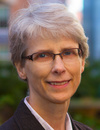 Nancy L. Allbritton is the Kenan Professor of Chemistry and Biomedical Engineering and Chair of the Joint Department of Biomedical Engineering at the University of North Carolina at Chapel Hill (UNC) and North Carolina State University (NC State). Her research focuses on the development of novel technologies for applications in single-cell analysis, micro-arrays and fluidics, and organ-on-chip and has resulted in over 180 full-length journal publications and patents and led to 15 commercial products. Her research program has been well funded by the National Institutes of Health with $60 million in grant funding since 1994. Four companies have been formed based on her research discoveries: Protein Simple (acquired by Bio-Techne in 2014 for $308M), Intellego (subsequently integrated into International Rectifier), Cell Microsystems (www.cellmicrosystems.com), and Altis Biosystems (www.altisbiosystems.com). Dr. Allbritton is a Fellow of the American Association for the Advancement of Science, the American Institute for Medical & Biological Engineering, and the National Academy of Inventors. She obtained her B.S. in physics from Louisiana State University, M.D. from Johns Hopkins University, and Ph.D. in Medical Physics/Medical Engineering from the Massachusetts Institute of Technology, with a postdoctoral fellowship at Stanford University. |
Mark BradleyProfessor of Therapeutic Innovation, Precision Healthcare University Research Institute, Queen Mary University of London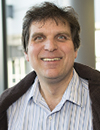 Mark received his doctorate from the University of Oxford in 1989, followed by post-doctoral studies at Harvard and returning to the UK as a Royal Society University Research Fellow (University of Southampton). In 1997 he was made a Professor of Combinatorial Chemistry setting up the UK’s Centre for Combinatorial Chemistry. In 2005 he moved to the University of Edinburgh, where he was Director of a £15M Interdisciplinary Research Collaboration in the area of Optical Molecular Imaging (Proteus 2014-2023) and a Doctorial Training Centre (60PhD) in Optical Imaging with Entrepreneurship. In Aug 2023 he moved to Queen Mary University of London as Professor of Therapeutic Innovation and part of the Precision Healthcare university Research Institute. He held an ERC Advanced Grant on “SmartMaterials” for cellular control. He is a co-founder of Ilika Technologies (2004) (which floated on AIMS in 2010), DestiNA Technologies (2010) and Edinburgh Molecular Imaging (2014) and Biocaptiva (2021). |
Paul GatenholmProfessor, Director of 3D Bioprinting Center, Chalmers University of Technology, Sweden; CEO, CELLHEAL AS, Norway Dr. Gatenholm is professor of Biopolymer Technology at Chalmers University of Technology, Founder of 3D Bioprinting Center, and Director of Graduate School at WWSC. He is also Adjunct Professor at Joint School of Biomedical Engineering and Sciences at Virginia Tech and Wake Forest University and Adjunct Professor of Biomaterials at Wake Forest Institute for Regenerative Medicine in Winston-Salem, North Carolina, USA. His research includes biological fabrication through the use of enzymes, cells, and the coordination of biological systems. Dr. Gatenholm is particularly interested in designing and preparing new biomaterials which can replace or regenerate tissue and organs. During past five years he has dedicated his time to development of 3D Bioprinting technology which he believes will revolutionize the field of Medicine. He has published more than 300 papers and edited several books and has more than 9000 citations. He is elected member of Swedish Royal Academy of Engineering Sciences. Dr Gatenholm is an entrepreneur and is currently CEO of new biotech start up in Oslo, Norway. |
Gary GintantSenior Research Fellow, Abbvie.png) Dr. Gary Gintant is Senior Research Fellow in the Dept. of Integrative Pharmacology, Integrated Science and Technology, at AbbVie. He is involved in multiple internal drug discovery and safety initiatives internally; external activities include various cardiac safety initiatives (such as ILSI/HESI Proarrhythmia Models Project, the Cardiac Safety Research Consortium, and the Comprehensive in Vitro Proarrhythmia Assay Initiative) while serving on various journal editorial boards, NIH study sections, and Safety Pharmacology Society committees. Research interests include cardiovascular pharmacology, cellular electrophysiology/ion channels, arrhythmias, application of stem-cell derived cells and tissues to drug discovery efforts, and translational medicine. He gained his MA, M.Phil. and PhD degrees from the College of Physicians and Surgeons of Columbia University. |
Linda GriffithProfessor, Massachusetts Institute of Technology (MIT)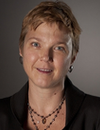 Linda G. Griffith, PhD, is the School of Engineering Teaching Innovation Professor of Biological and Mechanical Engineering and MacVicar Fellow at MIT, where she directs the Center for Gynepathology Research and the Human Physiome on a Chip Project supported by the DARPA/NIH-funded Microphysiological Systems Program. Dr. Griffith received a Bachelor's Degree from Georgia Tech and a PhD degree from the University of California at Berkeley, both in chemical engineering. Dr. Griffith’s research is in the field of regenerative medicine and tissue engineering. Her laboratory, in collaboration with J. Upton and C. Vacanti, was the first to combine a degradable scaffold with donor cells to create tissue-engineered cartilage in the shape of a human ear. The 3D Printing Process she co-invented for creation of complex scaffolds has been commercialized for manufacture of FDA-approved scaffolds for bone regeneration. She is also a pioneer in devising ways to control nano-scale stimulation of cells by molecular cues, and in creation of 3D tissue models for drug development. The 3D perfused “LiverChip” liver tissue culture technology has been commercialized for applications in drug development. A current focus is integration of tissue engineering with systems biology, with an emphasis on endometriosis and other women’s reproductive diseases. She is a member of the National Academy of Engineering and the recipient of a MacArthur Foundation Fellowship, the Popular Science Brilliant 10 Award, NSF Presidential Young Investigator Award, the MIT Class of 1960 Teaching Innovation Award, Radcliffe Fellow and several awards from professional societies. She has served as a member of the Advisory Councils for the National Institute for Dental and Craniofacial Research and the National Institute of Arthritis, Musculoskeletal and Skin Diseases at NIH. As chair of the Undergraduate Curriculum Committee for Biological Engineering at MIT, she led development of the new Biological Engineering SB degree program, which was approved in 2005 as MIT’s first new undergraduate major in 39 years. |
James HickmanProfessor, Nanoscience Technology, Chemistry, Biomolecular Science and Electrical Engineering, University of Central Florida; Chief Scientist, Hesperos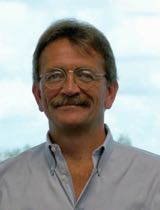 James J. Hickman is the Founding Director of the NanoScience Technology Center and a Professor of Nanoscience Technology, Chemistry, Biomolecular Science, Biomedical Engineering, Material Science and Electrical Engineering at the University of Central Florida. Previously, he held the position of the Hunter Endowed Chair in the Bioengineering Department at Clemson University. Dr. Hickman has a Ph.D. from the Massachusetts Institute of Technology in Chemistry. For the past thirty years, he has been studying the interaction of biological species with modified surfaces, first in industry and in the latter years in academia. While in industry he established one of the first bioelectronics labs in the country that focused on cell-based sensors and their integration with electronic devices and MEMS devices. He is interested in creating hybrid systems for biosensor and biological computation applications and the creation of functional in vitro systems for human body-on-a-chip applications. He has worked at NSF and DARPA in the area of biological computation. He is also the founder and current Chief Scientist of a biotechnology company, Hesperos, that is focusing on cell-based systems for drug discovery and toxicity. He has 166 publications and 20 book chapters, in addition to 34 issued patents out of 50 total patent applications. He was elected to the Board of Directors of the American Institute for Medical and Biological Engineering (AIMBE) for 2 consecutive terms, the premier society for Biomedical Engineering of which he is a Fellow. He is also a Fellow of the American Vacuum Society (AVS) and National Academy of Inventors (NAI) as well as BioFlorida’s Researcher of the Year (2022). Dr. Hickman along with Dr. Michael Shuler, won the Lush Prize, in the Science Category, which Supports Animal Free Testing in 2015. |
Reyk HorlandCEO, TissUse GmbH Dr. Reyk Horland was appointed CEO of TissUse in October 2020 following 8 years as Head of Business Development. His business network includes leading pharmaceutical and consumer product companies as well as regulatory authorities and outstanding research institutions worldwide. Prior to TissUse, Dr. Horland studied Biotechnology at the Technische Universität Berlin and specialized in Medical Biotechnology. During his academic career he was involved in various tissue engineering programs, all with a focus on the commercialization of the respective products. |
Roger KammCecil and Ida Green Distinguished Professor of Biological and Mechanical Engineering, Massachusetts Institute of Technology (MIT)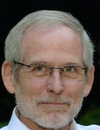 Kamm is currently the Cecil and Ida Green Distinguished Professor of Biological and Mechanical Engineering at MIT, where he has served on the faculty since 1978. Kamm has long been instrumental in developing research activities at the interface of biology and mechanics, formerly in cell and molecular mechanics, and now in engineered living systems. Current interests are in developing models of healthy and diseased organ function using microfluidic technologies, with a focus on vascularization. Kamm has fostered biomechanics as Chair of the US National Committee on Biomechanics (2006-2009) and of the World Council on Biomechanics (2006-2010). Kamm currently directs the NSF Science and Technology Center on Emergent Behaviors of Integrated Cellular Systems. He is the 2010 recipient of the ASME Lissner Medal (American Society of Mechanical Engineering) and the 2015 recipient of the Huiskes Medal (European Society of Biomechanics), both for lifetime achievements, and is the inaugural recipient of the ASME Nerem Medal for mentoring and education. He was elected to the National Academy of Medicine in 2010. Kamm is co-founder of two companies, Cardiovascular Technologies and AIM Biotech, a manufacturer of microfluidic systems for 3D culture. |
Norio NakatsujiChief Advisor, Stem Cell & Device Laboratory, Inc. (SCAD); Professor Emeritus, Kyoto University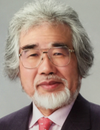 Prof. Norio Nakatsuji is Professor Emeritus of Kyoto University and Founding Director of its Institute for Integrated Cell-Material Sciences. He is also Chief Advisor of Stem Cell & Device Laboratory, Inc. and CEO of Kyoto Stem Cell Innovation, Inc. |
Shoji TakeuchiProfessor, Center For International Research on Integrative Biomedical Systems (CIBiS), Institute of Industrial Science, The University of Tokyo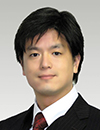 Shoji Takeuchi received the B.E, M.E., and Dr. Eng. degrees in mechanical engineering from the University of Tokyo, Tokyo, Japan, in 1995, 1997, and 2000, respectively. He is currently a Professor in the Center for International Research on Integrative Biomedical Systems (CIBiS), Institute of Industrial Science (IIS), University of Tokyo. Since 2008, he is a director of Collaborative Research Center for Bio/Nano Hybrid Process at IIS. His current research interests include membrane protein chips, bottom-up tissue engineering and biohybrid MEMS. He received several awards including Young Scientists' Prize, the Commendation for Science and Technology by the Minister of Education, Culture, Sports, Science and Technology in 2008, the JSPS prize from the Japan Society for the Promotion of Science in 2010. |




